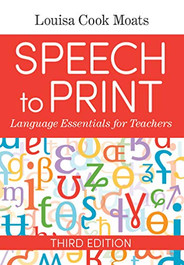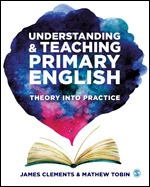Let's talk about the Science of Reading
- Clara Maria Fiorentini

- Aug 20, 2021
- 7 min read
Updated: Aug 25, 2021

I can read.
You can read.
We can read.
You read those automatically - didn’t you? Without a thought. Easy peasy. That wasn’t difficult! Well, actually, for your brain - it was! It would have been especially challenging during the early stages of your reading development.
Despite what some theories and practices may have suggested in years past, we don’t just catch the ability to read. Our brains are hardwired to speak, not to read. Quite simply, we were never born to read (Wolf, 2008). In order to read, we push the natural limitations of our brains. Imagine rearranging the wiring in our brain in order to grasp the various components of reading - because that is essentially what is happening when we learn to read. We are building brain circuitry to support the ability to read. In scientific terms, our neuronal networks are recycled to facilitate literacy (Dehaene, 2009). So teaching reading really is a science; it is a complex and demanding task which requires time, effort, and consistency. Additionally, with a broad continuum of interconnected literacy skills, we must equip our readers, writers, and spellers of the future with the skills to succeed by ensuring we are unlocking all components on that literacy continuum.

When perusing any contemporary research or publications surrounding literacy practices, it’s increasingly rare to be far from references to the Science of Reading. It’s an exciting time for literacy and for reading practices. Thanks to developmental psychology, cognitive neuropsychology, developmental linguistics, and educational intervention research, we know more now than ever before about our ‘reading brain’ (Wolf, 2007; Dehaene, 2009; Stewart, 2020). However, like any form of educational change or development, we must give ourselves time to absorb, reflect and adapt. Through the Science of Reading we, as teachers, are now better equipped to successfully teach children how to read and more informed on what to do if, and when, children struggle with reading.
First things first, the Science of Reading is not a programme. It is not a fad. It is not ‘just’ an article. In short, the Science of Reading is a wide body of research which provides us with an evidence-based rationale for how we actually learn to read. The research spans decades of worldwide studies costing millions of euro. These studies which compile the research behind the Science of Reading “have revealed a great deal about how we learn to read, what goes wrong when students don’t learn, and what kind of instruction is most likely to work the best for the most students” (Moats, 2019).

So, let’s cut to the chase; in the everyday realities of the classroom, what does the Science of Reading actually mean in terms of our everyday teaching of reading?
There is no doubt about it, we must collectively aim to teach reading in ways that support high reading achievement and using what scientific evidence has shown us is most likely to prevent reading failure.
The research behind the Science of Reading now gives us a proven guide for what we must prioritise for effective and appropriate reading instruction. Five essential literacy components underpin the findings of the SoR.
Phonemic Awareness
Phonics
Fluency
Vocabulary
Comprehension
Reading IS difficult to learn. Teaching reading IS challenging. Traditions and programme implementation methods have often led us into habits and practices that have not always fully supported the reading development of all our learners. However, there are models of reading, which help guide us as educators in better recognising and establishing our priorities for literacy, and therefore plotting our intentions for instruction appropriately.
The ultimate goal of reading can often become blurred amongst the hustle and bustle of classroom practices, parental expectations... and much more. Reading IS difficult to learn. Teaching reading IS challenging and demanding and ultimately requires a sophisticated level of teacher knowledge on each of the fundamental components of literacy. Traditions and programme implementation methods have often led us into habits and practices that have not always fully supported the reading development of all our learners. Quite often, a preoccupation with 'teaching programmes' as opposed to 'teaching children' exists. It is imperative that as teachers of reading that we share the realisation that the goal of reading is not just merely recognising words and reading them aloud; it’s reading comprehension - we must understand what we read, as we read. We cannot afford to neglect the role background knowledge plays in that comprehension too!
Take for example our early literacy instruction habits. Phonics is never far from mind or timetables. Phonics instruction is of course important and plays a significant role in the Science of Reading findings. However, focus on phonics alone, in decontextualised formats will not support effective or adequate instruction. When phonics instruction dominates our instruction schedule, where lies the time for the remaining literacy components? The Simple View of Reading below helps in depicting this:

Image source: Sadlier.com
Scarborough’s Reading Rope (2001) supports us in envisioning the intricacies of reading development and the Simple View of Readingn a little more detail. All sub-components of language comprehension and word recognition are intertwined, all are important, all need to be fostered, and regardless of age and stage, all should be taught explicitly and in ways that are consistently connected to the experience of reading or being read to. Books, stories, rhymes, poems, songs, chants, riddles, conversations, developing background knowledge - none should be too far from hand.

Image source: International Dyslexia Association
Changes to practice are rarely achieved without difficulty, resistance and questions. That’s a good thing - affording ourselves time to learn and reflect is important. It’s apparent however that the friction has resumed in research spheres - particularly so in the US, where granted, much of the SoR research was carried out. A lot of the heat and tension going on however is well above the ground and realities of classroom practice. Cheap shots are fired across Twitter and various other realms of social media. The mudslinging and reading war rhetoric attracts social media coverage and quite simply, widens reach for profiles evidentially looking to do so. Indeed, it creates threads and heated conversations about what’s proven, what’s not and what we need to change. But, surely such a mentality detracts from the matters at hand? Who wins? I often wonder about how that energy could be better channeled elsewhere, like maybe just getting on with the task of sharing the knowledge and practice examples with those who will ultimately facilitate the change we need in reading instruction... our teachers? Yes, *some* previously popular practices have been refuted - things like the 3 cueing system (dare I say it!), round robin reading, decontextualised phonics instruction. But surely as time passes, that would only to be expected? We learn. We change. We grow. We adapt. Literacy is evolutionary - and thanks to technology we know a lot more about cognitive development than we did - even just ten years ago. Calling on the age old Maya Angelou quote, ‘When we know better, we do better!” The narrative around change in literacy practice needs to echo this and become more a matter of ‘Here are the facts. Look at what we know now, thanks to research! Let’s acknowledge how things have changed, and with this knowledge, plan where we can go from here.’ It would suit progress better to leave the virtual stone throwing aside and concentrate on building and sharing knowledge on the ground. Time wasted through dispute delays progress for the next generation of readers, writers and spellers. Teachers deserve the knowledge to provide the best, evidence based learning opportunities for their pupils. Let’s prioritise that and bridge the research-to-practice gap. What is the true value of knowledge anyway if it isn’t shared with others?
Whatever the case, whatever the literacy approaches or systems your setting adopts, we need to keep our minds closely attuned to the act of reading. Every literacy component or concept we focus on, needs to be connected to reading. We want our young learners to become readers, to enjoy reading and to keep returning to reading! We cannot afford to lose sight of the fact that the Science of Reading is also about facilitating a love of reading. What is reading at the end of the day, if it is not something to be enjoyed? To enjoy reading, we need to be able to do it confidently; and ultimately, that can only come through a collective effort in getting the instruction right for the emerging reader.
Keep learning:
There is still a significant gap in Science of Reading materials for schools, just yet. However, if you are looking to align your literacy practice more closely to the Science of Reading or wish to learn more about the Science of Reading, the following are some useful supports, texts, resources, podcasts, and profiles to peruse.
Recommended reads:
Useful articles:
Websites:
Professor Timothy Shanahan’s website and blog is a treasure trove of literacy articles and blog posts. A voice to seek out when you are looking for facts and research-based knowledge on literacy. An excellent profile to follow on Twitter too!
Dr. Moats is a popular voice in the research surrounding the language base for reading and writing. Her website offers a wealth of webinar recordings and supports for teachers and educators with an interest in evidence based literacy practice.
You can become a member of The Literacy Association of Ireland and gain access to support and publications on the most up-tp-date literacy research. On the LAI website there is a resource portal for subscribed members with a library resources, recommended podcasts, articles, and a suite of excellent webinar recordings; two of which focus on the Science of Reading and the Reading Brain.
Podcasts:
Science of Reading: The Podcast by Amplify
Twitter:
Facebook:
If you use Facebook, there is an excellent group for Irish primary teachers with an interest in the SoR. A safe space for fruitful discussion and recommended resources.
Amplify have a Science of Reading page too. Some useful threads there too.

















Comments